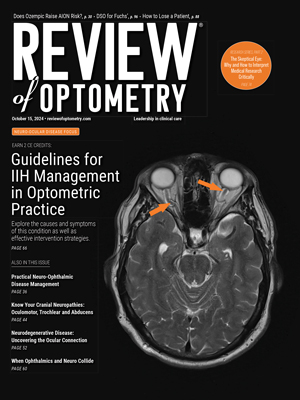Establishing a method for educating individuals with severe autism can be a challenge. Because severely autistic people have limited, if any, verbal skills, educators can’t be sure whether they are receiving information. But new research shows that tracking their eye movements may provide a non-verbal reaction that can illustrate the student’s understanding. The research, published in a recent issue of Cognitive and Behavioral Neurology, shows that three measurements—eye movement monitoring, pupillary dilation and event-related potentials—may be able to provide reliable estimates of receptive vocabulary knowledge in those with level three autism.
The investigators used the cases of five adults with level three autism. The subjects were presented with several words the researchers already knew they were familiar with (e.g., “bus” and “airplane”) and several words (e.g., “ackee” and “cherimoya”) they were likely unfamiliar with. The researchers presented the spoken vocabulary words to the subjects in conjunction with visual images, in what researchers called a picture-word congruity task.
During the eye movement assessment, the subjects demonstrated they knew a word when their eyes tracked to the correct image, out of four displayed on a computer screen, when they heard the spoken word. During the same task, the researchers felt pupil dilation signified cognitive effort and that the subject was unfamiliar with the work. No pupil dilation, however, likely meant the subject knew the word.
The final assessment used electroencephalography to measure brain activity when the subjects heard a word and were shown an image that did or did not match. Based on previously identified brain activity patterns, the researchers could conclude whether the subject knew the word or not.
Although each subject responded differently to each of the three testing strategies, all three proved useful in assessing language abilities in individuals with level three autism. Researchers and clinicians should tailor these implicit measures to each patient when assessing language abilities, the researchers concluded.
| Coderre E, Chernenok M, O'Grady J, et al. Implicit measures of receptive vocabulary knowledge in individuals with level 3 autism. Cogn Behav Neurol. 2019;32(2):95-119. |

